
by Rachel Toalson | This Writer Life
This summer a collection of my sons banded together to start a lawn business. For some of them, it was a steep learning curve. On the first few jobs my husband served as the lawn inspector, to make sure they did good work. He had to call them back a few times; they were inexperienced and were learning something new.
The experience gave my husband and me an opportunity to discuss with them the importance of doing good work, especially when someone else is paying you to do it. Do your best, I told them before they’d walk to the yard in need of mowing. Make it excellent.
Excellence is one of my values, so I may have stressed that point a little more than necessary.
Steve Jobs once said, “Your work is going to fill a large part of your life and the only way to be truly satisfied is to do what you believe is good work.”
Most of us spend the majority of our lives working—at something. Some of us get to do what we love. Some of us do the work we have to. Regardless of which it is, we can feel satisfied—and learn to love the work we do—if we do good work. Excellent work, maybe.
Satisfaction is tied to excellence. When we haven’t done our best, we usually feel it in our guts. And it doesn’t feel good.
So how can we make sure we’re pursuing excellence in our work?
Here are my suggestions:
1. Don’t be in a hurry.
Good work—excellent work—takes time. Nothing comes out excellent on the first try. I tell this to the students I visit at schools. Because often, especially when we’re young and new at what we’re doing, we just want to be there. Done. An excellent writer producing excellent work.
The mower in my sons’ business group rushed one of the yards he worked on. It was hot. The lawn mower was heavy. It was nearly time for lunch. When my husband inspected the yard, there were tiny blades of grass in patches everywhere. He had to go back and do it again. He could’ve saved himself some time by doing it right the first time.
When it comes to writing, we can save ourselves time (and disappointment) in the long run if we first take the time to make our work excellent—because an agent or editor won’t take less than that. And we usually only get one shot. We should make sure it’s an excellent one.
2. Never stop growing.
I’ve written about this before, and maybe you’re getting tired of hearing me say it…but in order to be excellent at anything, we have to keep growing. Challenging ourselves. Learning.
That might mean pursuing different forms of writing or different genres of writing, or it might mean telling a story from a different point of view or starting a story in the middle instead of working beginning-to-end. Change things up so you don’t get too comfortable. That’s a way to grow.
It could also mean collaborating with someone or surrounding yourself with mentors and soaking up everything you can from them or pursuing a deeper understanding of craft and writing techniques.
It definitely means practice, practice, practice.
One of the ways I’ve been trying to grow this year is by improving my pitches. I don’t like writing pitches. But they’re necessary at pretty much every step of the process—for my poetry, for my essays, for my short stories, and for my novels. So I’ve been studying and practicing relentlessly.
The other day I sent some story pitches to my agent. She sent me a message back that said, “Your pitches are excellent.” Talk about satisfaction! I beamed it!
3. Accept where you are now and know it’s enough
In pursuing excellence, we can often slide into the pit of perfectionism, which can lead to frustration and disappointment. Maybe even discouragement.
One of the hardest things to do is accept where you are—especially when you want to be farther up the excellence scale. But it’s better to accept where you are today and know that when you commit to learning and growing and you take your time, you will get there.
Everyone wants to be satisfied with their work. So let’s commit to excellence and see how our satisfaction grows.
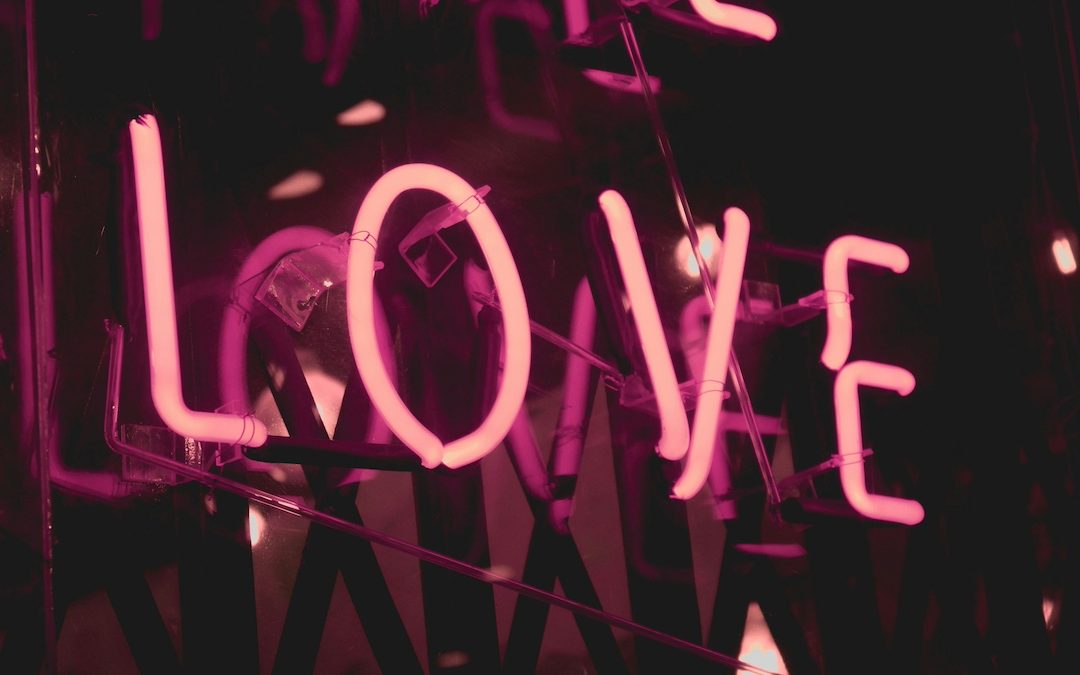
by Rachel Toalson | Books
Here are some things worth sharing this month.
1. Reading (YA NF): “Love, you see, is the most important emotion.” I just finished Accountable: The True Story of a Racist Social Media Account and the Teenagers Whose Lives it Changed, by Dashka Slater, and it was PHENOMENAL. Sorry to yell. But it really was. I’m planning to read it with my kids, because I believe every teen needs to know the consequences of what they post on social media—and take care with the “selves” they curate for the world. This book raised so many important questions and topics of discussion that I think it should be required reading for today’s teenagers. Very highly recommended. (By the way, Slater is also the author of The 57 Bus: A True Story of Two Teenagers and the Crime that Changed Their Lives, which was equally good reading and discussion.)
2. Reading (MG): My first read-aloud of the summer with my kids, Eagle Drums, by Nasugraq Rainey Hopson, did not disappoint. It was a story about the origin of the Iñupiaq Messenger Feast, which is a Native Arctic tradition. Hopson included her own illustrations, and both those and the story held my sons captivated. The book was a 2024 Newbery Honor book. Highly recommended.
3. Watching: Years ago, I watched Won’t You Be My Neighbor, a documentary about Fred Rogers, the creator of Mister Rogers’s Neighborhood. My 9-year-old did a research project about him last spring, and this summer we decided to watch the documentary together as a family. I had forgotten how emotional and wonderful it is. Mister Rogers is one of the reasons I write the kinds of stories I do, because this quote of his has stuck in my mind since I read it: “The world is not always a kind place. That’s something all children learn for themselves, whether we want them to or not, but it’s something they really need our help to understand.” What a remarkable human being. We need more Fred Rogers in the world. Very highly recommended.
4. Reading (MG): I’m not sure what made me pick up Finding Orion, by John David Anderson, but I’m glad I did. It was a fun, quirky, emotional story about a boy basically coming to terms with who his family is—weirdness and all. I suppose it reminded me of my own quirky family—and the fact that we’re all weird in our own ways. We should celebrate that, instead of trying to hide it! Highly recommended.
5. Reading (YA): If you’re looking for a fantastic novel in verse this summer, pick up The Ghosts of Rose Hill, by R.M. Romero. It’s a story about a young woman and some ghosts and what it means to be yourself. And as if that’s not enough, it has the feel of a gothic fairy tale. (And if you get on a Romero kick, like I did, after reading this one, be sure to check out A Warning About Swans, a verse retelling of Swan Lake.) Highly recommended.
6. Reading (A): “Remember that just because something is, doesn’t mean it can’t change, and just because you haven’t seen something before, that doesn’t mean it’s impossible.” Oh my goodness. I just finished Chain-Gang All-Stars, by Nana Kwame Adjei-Brenyah, and my mind is still reeling. It was a National Book Award finalist, and it delivers! The Washington Post likened it to 1984 meets The Handmaid’s Tale. I loved the way Adjei-Brenyah interspersed little truth bombs about incarcerated people of color. Wow. That’s all I could say once this one was done. (Well, that and, “What?!”) Highly recommended.
7. Watching: My husband and I just started watching The Girls on the Bus, a show about four female journalists who are reporting on presidential candidates. It’s based on Amy Chozick’s memoir, Chasing Hillary. Rotten Tomatoes didn’t give it a great rating, but I LOVE IT! Maybe it’s because I was a journalist (a political journalist for a while, until I figured out I couldn’t hack it because I HATE people lying to me; it’s one of my things). It fascinates me to see the life of a journalist on the big screen. It brings back cringe-y memories and makes me feel uncomfortable. And raises so many questions about media literacy and how to tell the legitimate news outlets from the less legitimate. The show was canceled after this first season, but I’d still recommend checking it out. Very highly recommended.
Side note: Why does Max seem to cancel female political/media dramedies? This also happened with Minx, which I thought was a delightful show—but once again, it was canceled after only two seasons. And then they took it off Max? I didn’t even get to finish the series—so if anyone knows where to watch it, drop me a line! 🙂
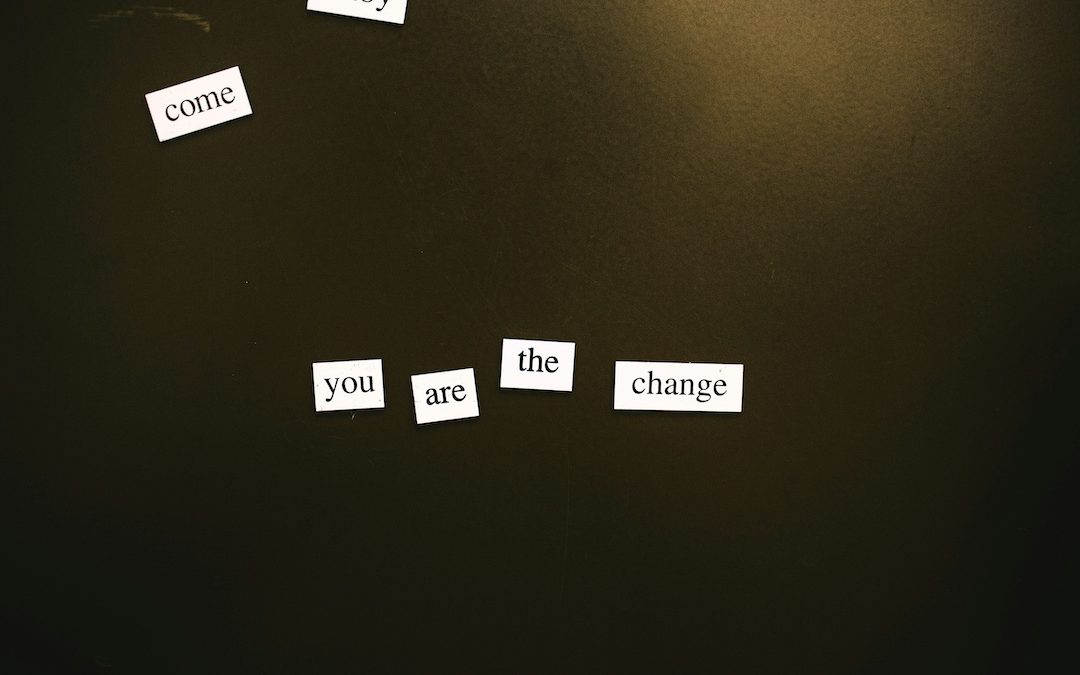
by Rachel Toalson | Wing Chair Musings
I like to be in control. It’s one of my things.
Life is good at reminding me I can’t be in control of everything.
Right after our twentieth wedding anniversary, my husband lost his job. A job that paid well. A job that provided us with good health insurance and all the things we needed (writing is not one of those kinds of jobs, for the majority of us).
It threw me into a tailspin. It was very hard on my family. It brought up some old childhood trauma.
I couldn’t control when (or if) he’d get another job or where that would be or how long our savings would last or what might happen in the gap.
It was excruciating. I started sliding into some of my life-is-out-of-control-and-I-need-control habits—not eating, exercising more, slipping into myself instead of talking to the people around me or seeking others for emotional help and support.
No amount of not-eating or overexercising or over-thinking or removing myself from society could change what was happening, though. I had to endure it.
So much of life is like this. I mean, we have all now lived through a global pandemic—are still living with it. This was completely and utterly unexpected. We had to endure it. We couldn’t control any of what happened—except where it concerned ourselves.
And that brings me to what we can control in life: ourselves.
I certainly can’t control other people—who my kids wake up being today, what food they decide they like this week and whether they complain about tonight’s dinner, how helpful that customer service representative will be on the other end of the phone line, how many emails Allstate will send me reminding me I have an auto quote ready, am I ready to proceed?
For a person who prefers control, a whole lot of life is out of my control. I would like to change so many things, but I don’t have control over that change. How kind people are to one another. The rate of inflation. AI taking the jobs of people I love. I can’t control how many people will read this newsletter or what the state of the world will be from day to day or what will happen in the news and how other people will report that news. I can’t control the rising prices of groceries that’s killing us or whether it will rain when I go out for my run tomorrow morning or whether I will sell another book, ever.
These things and their uncertainties I have to endure.
I’d like to change the world into a more just world, into an economically fair world, into a media literate world. I don’t have control over any of that—I mean, I can work for those things, certainly, but I can’t control whether my work will change anything significant.
Sometimes we just have to endure.
“I changed what I could—and what I couldn’t, I endured,” said Dorothy Vaughan, an American mathematician and computer programmer.
And we can endure. We can make it through. It may sound trite, but this, too, shall pass. My husband losing his job taught me that.
He has a new job. We’re catching up. We endured as well as we could. We’d like to have some easy times for a while, but one never knows what’s around the corner. We control what we can, and the rest we endure.
I hope you have a beautiful month of enduring—and changing whatever you can.
Here are some things I like to think about changing:
1. My own thoughts, opinions, beliefs and attitudes about my situation
There are times when I’ve been so overwhelmed I’ve said, “I just can’t do this.” And I couldn’t. When we say we can’t, we can’t.
My attitude about any situation can make it easier or harder for me. When I step out the door for a run and I think, “Oh, wow, it’s really humid, this is gonna be a tough run,” it is a tough run. And sure, maybe that’s because of the humidity, but it’s also because my mind believes it’s hard, and that become my reality. If I step out the door and think, “I’m feeling great today!” I have a much better and easier run.
We can do the same in our lives—approach each hurdle with a positive attitude. (I know, I know, I’m an eternal hopeful pessimist, and it’s hard to be positive about certain things…but I’m trying.) And the hurdles get a little smaller.
I like to repeat the mantra, I can do hard things, instead of This is too hard. Because then I can do hard things.
2. How I deal (or don’t) with my emotions
We can’t always control what emotions we feel during a particular situation, but we can control how they affect us and what we do with them.
Every emotion is acceptable. We just have to figure out healthy ways of dealing with them. Stuffing them down is not healthy. If we feel them, that allows them to pass, the way emotions are supposed to do. It lessens their power over us.
So we feel our emotions and we let them pass and we move on to the next thing.
3. My interactions with the world and other people
While we can’t control other people we come into contact with, we can control ourselves. When we experience unhelpful customer service, we can extend kindness to the person at the other end of it. Make sure they have a good interaction with us, because that’s a hard and mostly thankless job.
I like to think, I may be the only person who will love them today. What do I want that love to look like?
That’s something we can control.
Approach each other with love and compassion and acceptance—that’s a change worth working for.
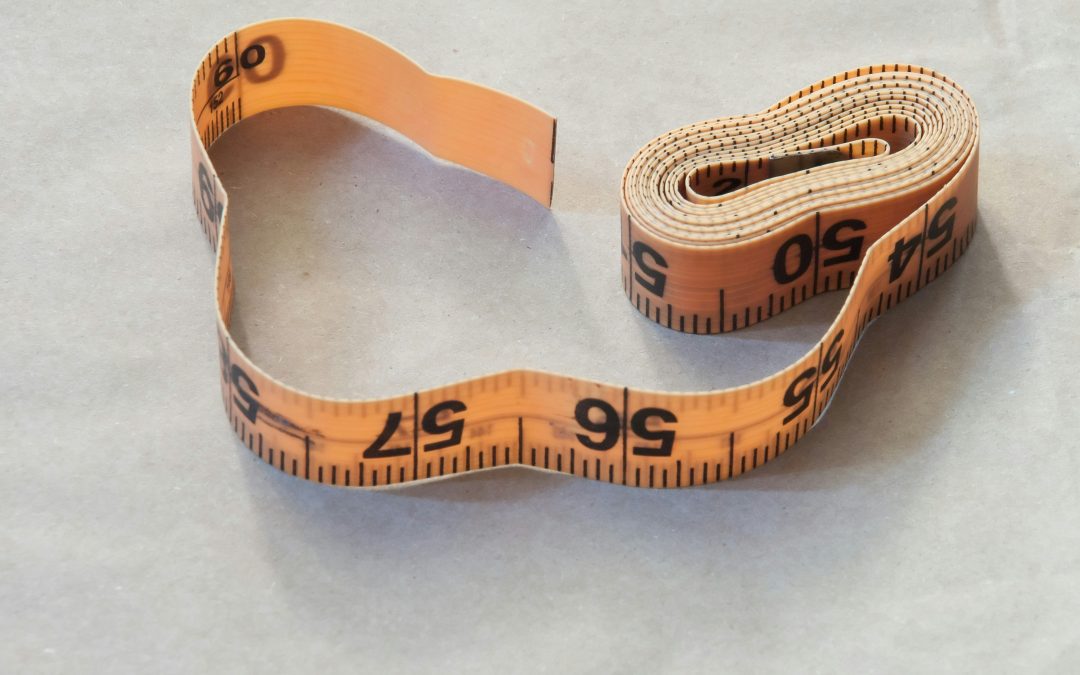
by Rachel Toalson | This Writer Life
This summer my kids have been trying to learn cool yoyo tricks. They watch YouTube videos, then try to do the tricks on their own—some more successful than others. Some are great at taking their time learning. They’ll laugh at their mistakes and keep trying, at least until they get bored with the practice.
But some have a really hard time with the chasm between how good they want to be and how good they are at this moment in time. They want to be good right now.
As I watched one put down the yoyo and move on other things, one keep practicing until he got “good enough for today,” and another get frustrated to tears because he couldn’t immediately execute a complicated trick, my thoughts turned to writing. And how sometimes it can be excruciating to take our time getting incrementally better.
When many of us (including myself) first get started writing, we want to be the best writers right now—not in five or ten or thirty years. Do we really have to wait that long for this to get easy? (I don’t know…I’m not fully convinced it ever gets easy.)
And related to being the best writers, we want to accomplish ALL THE THINGS right this minute!
I’ve told my kids for a very long time that anything worth doing takes time. (I have a lot of wisdom nuggets that probably go in one ear and out the other—which is why I repeat them so often. They’ll be mantras in their heads by the time they leave this house. I can do hard things. I am magnificent. I can take my time becoming…anything!)
It’s not always fun to take our time.
We’ve been listening to the Hamilton soundtrack nonstop this summer (a few kids are obsessed with the musical). There’s a song with the line, “Why do you write like you’re running out of time?” That gets me every time I hear it.
I’ve always written like I was running out of time. Everything feels urgent—every project, every piece, every idea. I have to do it. I have to do it now. And it needs to be great—now!
But we don’t learn how to be excellent at something quickly. Even if we have talent and skill, that talent and skill needs to be honed. We don’t start out excellent. We become excellent with practice and years.
Mary H.K. Choi, who has written some of my favorite young adult novels, says, “It’s not about the accomplishment, it’s about the very slow and grueling work of just getting better at something over time. It always takes time.”
It always takes time. And grueling work.
Getting better doesn’t just accidentally happen. We have to make it happen. We have to pursue it.
So how do we do that as writers? Here are my suggestions.
1. Improve intentionally
In order to improve intentionally, we have to be aware of our writing weaknesses. I like to make a list and then make a plan. Seek out educational resources, like Writer’s Digest (I subscribe to the print magazine, which is a fantastic resource, and their web site includes writing courses and craft books) or DIY MFA (https://diymfa.com/), which has all kinds of helpful resources on the craft and business of writing.
Make a curriculum of improvement for yourself, if you’re so inclined. I like to focus on one element at a time: character or voice or plot or story structure or setting or pacing. You can also go broader and focus on poetry or short story or essay as a “course of study.”
If that doesn’t appeal to you, because you’re not as ridiculously excited about learning as I am, you can still intentionally improve by constantly writing—and finishing what you start. And reading like your craft depends on it—because it does.
2. Evaluate
In order to improve, we must have some form of evaluation, even if it’s as simple as reading through your previously written compositions to note how you’ve improved and then reading through new stuff and making note of areas where you still need to improve. Look at your compositions through objective eyes. Many of my stories and compositions have their own unique areas of weakness, which means I have to approach each of them differently.
Here’s a little secret: that little niggling fear about what’s wrong with your piece or manuscript (the pacing’s off, the voice isn’t quite right, it has too many characters)—your gut is usually right, and an agent or editor will likely recognize it. Better to just go ahead and improve those pieces now. Sometimes that will require learning new things and gaining new skills. But we’re up for the challenge, aren’t we?
Give yourself a report card as you make your evaluations. Check on your progress every quarter or so.
3. Remember to be patient
Instead of thinking, Why can’t I be good at this already? focus on the ways you’ve improved incrementally. Improvement can be, as we’ve already established, excruciatingly slow. As a runner, I know this from my training. Making incremental gains, almost too tiny to notice, is still improvement. It all adds up.
In anything that takes time, there comes a point when we want to give up. That usually happens around mile eight of my runs (but years ago it would happen at mile four—so improvement!). Or the middle of a story. Or, lately, the end of the middle of a story. But keep at it. The end result is worth the work we put in now.
And it’s worth noting that we’re never really “there.” We never reach perfection. We always have potential for improvement, no matter how long we’ve been writing.
Time gives us practice, which leads to improvement.
Achievement also takes time. Often, the more we improve, the more we achieve. So there’s a silver lining for you.
When we’ve put in decades (I know how long that sounds, but the years seem to fly!) to our writing craft it can be incredibly fulfilling to look back and see how far we’ve come.
So how far have you come? Miles or inches, it’s all necessary improvement.
May you have a month of large and tiny improvements.
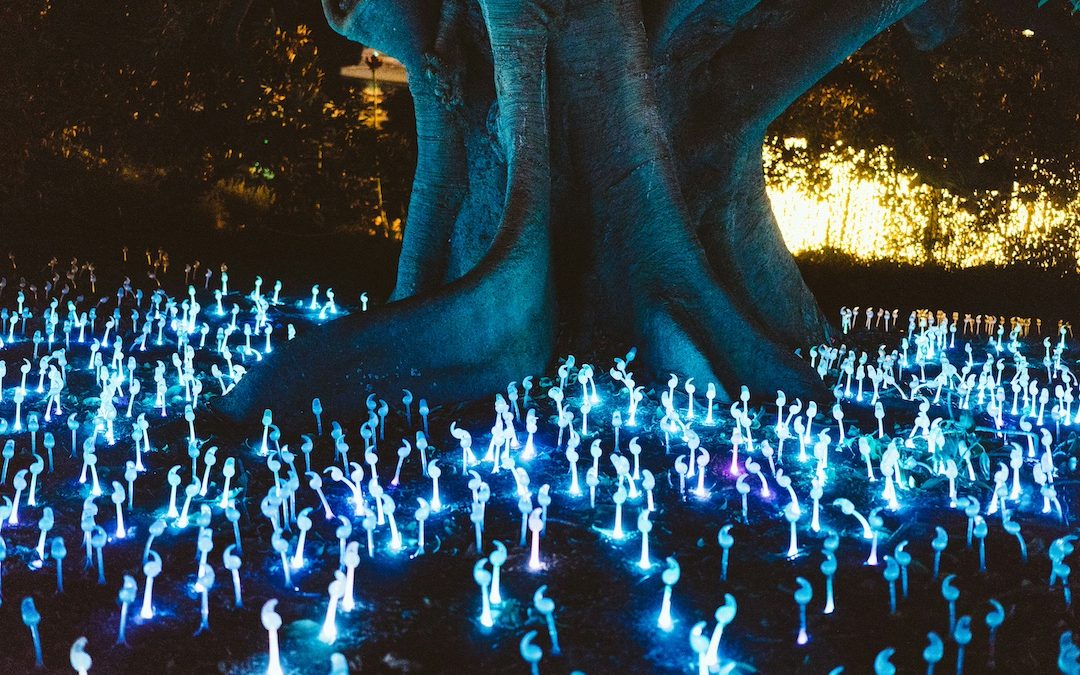
by Rachel Toalson | Books
1. Reading (MG): I loved the book, Louder Than Hunger, by John Schu. It’s a novel in verse that follows Jake as he struggles with anorexia and treatment for it. It’s powerful, informative, and emotional—and because it’s a novel in verse, it flies by. Though you may not want it to. (And other times, yes, you will. Schu, after all, examines a very difficult mental illness.)
2. Reading (memoir): “A person was an accretion, constantly growing in strangeness, becoming an accumulation. Healing was found in stretching toward abundance. It was not about leaving the past behind, dividing the self into good and bad, but about opening a path through ruins.” If you haven’t read The Man Who Could Move Clouds, by Ingrid Rojas Contreras, you must pick it up sometime this summer. It’s a brilliant exploration of Contreras’s family history as well as her life growing up in violent Columbia in the 1980s and 1990s. A Pulitzer Prize finalist, the book is one of those you’ll probably never forget.
3. Watching: I know I’ve probably exhausted your tolerance for gushing about Apple’s TV and movie offerings, but seriously. They make good film and TV. And their series Masters of the Air is no exception. But it is exceptional. It follows the 100th Bomb Group, comprised of airmen played by such swoon-worthy actors as Austin Butler (my favorite), Anthony Boyle, and Ncuti Gatwa (who was stupendous in Sex Education on Netflix). Check it out if you’re into historical shows based on true stories.
4. Reading (YA): I recently finished Mariama J. Lockington’s novel in verse, Forever is Now, about Sadie, who, after witnessing an altercation between a young Black woman and the police, struggles with her agoraphobia and anxiety in ways that are debilitating. It was a sometimes painful, sometimes beautiful exploration of anxiety and Black female joy. I highly recommend it.
5. Reading (memoir): “Mom didn’t get better. But I will.” Jennette McCurdy’s I’m Glad My Mom Died is probably one of my favorite celebrity memoirs that I’ve read (and I’ve been on a kick of them because I’m a nosy person and love learning more about people and harbor a secret wish to one day help write a celebrity memoir or biography). Funny (my favorite—dry humor AND sarcasm), emotional, and full of great quotes about mental illness and mental health, this is one you won’t want to miss.
6. Reading (MG): I enjoyed Corey Ann Haydu’s The Widely Unknown Myth of Apple & Dorothy, which follows the story of Apple and Dorothy, who are modern-day descendants of the gods. They live in their own city, and things are happy—until Dorothy’s mom decides to become human. I enjoyed the mythology and the friendship and the impossible choices the two of them face. If you have a kid who enjoys mythology—or you are one—this book’s for you.
7. Reading (A): “For in every adult there dwells the child that was, and in every child there lies the adult that will be.” I LOVED The Book of Lost Things, by John Connolly. This is an old book (published almost 20 years ago!), but it just became available as an audiobook in my library, and the cover intrigued me. The world-building, the magic, the fairy tales—all of it was spectacular. It follows 12-year-old David, who’s mourning the loss of his mother, with only his books to keep him company. He falls into a world of fairy tales and has to find his way back out, with wolves pursuing him every step of the way. The book has a sequel, The Land of Lost Things, which was just published this year. You can bet it’s on my TBR list!
8. Reading (upper MG): And what list would be complete without my newest release, Something Maybe Magnificent, which published in May?! This book is a sequel to last summer’s release, The First Magnificent Summer, but can also be read as a standalone. I would, of course, recommend getting both. 🙂 My heart and soul are in these books!
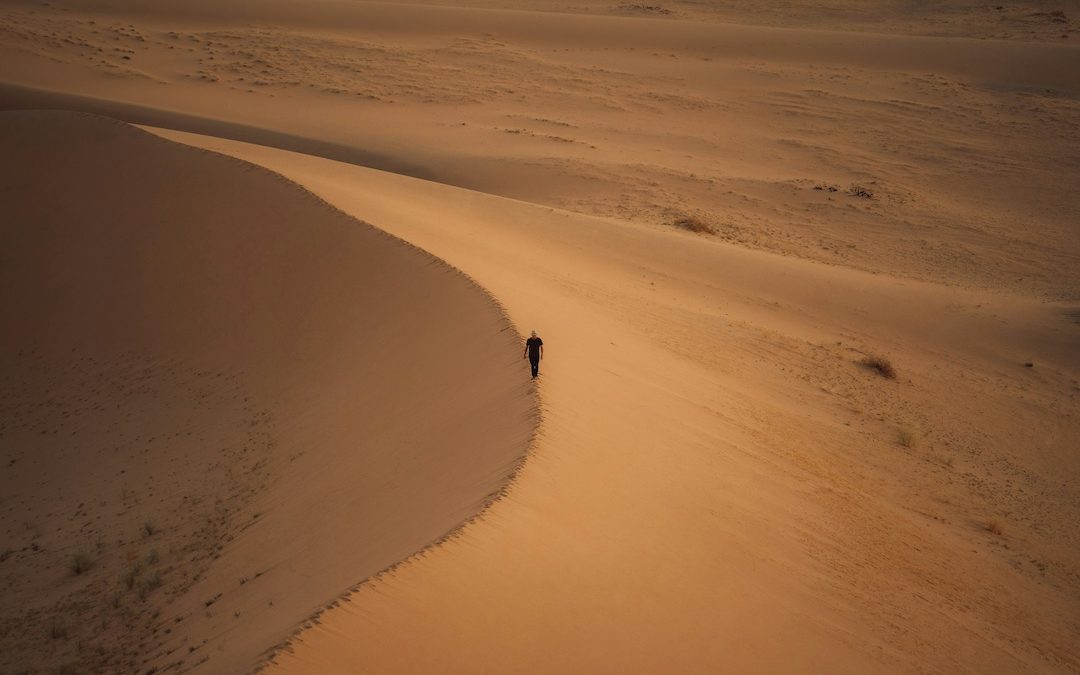
by Rachel Toalson | Wing Chair Musings
I’m the kind of person who thrives on solitude. Not all the time (that, I fear, would make me lonely). But sometimes.
I recently had a few days to myself, and I hadn’t even realized how much I needed them because of all the activity that comes from releasing a new book plus having kids home for the summer plus the regular speed of life.
Solitude revitalizes me. I use it to read, write, run, just stare into space.
Our modern lives are full of activity and people—not necessarily in-person people but online—and all of that can feel overwhelming. Sometimes I have to take time away from it all.
Summertime is challenging, because there are people everywhere. I don’t live in a big house, and now most of my kids are bigger than I am and take up more space. It’s practically impossible to find stillness and quiet, much less solitude.
But it’s necessary—for all of us.
Solitude can be uncomfortable for some people, especially at first. Without all the voices of other people, we can hear our thoughts really well. And that can be…unpleasant, depending on the day.
I recently watched a documentary on anxiety. In an anxious mind, like mine, there’s always chatter. It takes a lot of time to find quiet, and it rarely happens without solitude.
In solitude, the mind fills with a hundred things. It’s unsettling. At first. And then you reach the silence. A deep, inner silence (even if it’s not complete silence—it’s not for me). A place of knowing and understanding and clarity.
Gabriel García Márquez, a Columbian novelist and short story writer, once said, “The secret of a good old age is simply an honorable pact with solitude.” (He lived until he was 87 years old.)
I tend to agree.
Solitude, according to research, can reduce our feelings of stress and make us feel calmer. In solitude we can increase our self-knowledge and figure out our problems and think deeply about what’s going on in our lives and how to be a better human.
(A note here: Solitude is not synonymous with lonely. The reason I can be okay with and long for my solitude is because I have my people. So don’t cut yourself off from people just to find solitude; we need each other!)
Solitude increases our creativity, because it gives us space to breathe and think. It fosters a greater sense of intimacy and connection with others, contrary to what we may think about relationships (the old adage “absence makes the heart grow fonder” turns out to be true).
How much solitude is best for us?
That depends on the person. We all have to figure it out for ourselves. I spent a few days alone, and I felt completely renewed.
What should you do with your solitude? That’s completely up to you, too. Some of us can feel a little itchy with fifteen minutes all by ourselves and no one needing anything from us (myself included). So I’ve collected some of my favorite things to do with solitude (scroll down to the end of this email for the list).
In order to practice solitude, however long or short it may be, we have to prioritize it. The activity of a day eats away the hours. It’s gone before we know it—at least that’s how my life goes.
We might find we can better deal with the challenges our days often throw at us if we can just spend a little time by ourselves.
I hope you have a splendid month of finding moments of solitude.
What to do with solitude:
1. Read a book or write in a journal
2. Sit and stare into space (if it makes you cringe, set a timer so your brain knows it will end)
3. Just listen to your thoughts as they pass
4. Meditate
5. Do some candlelight yoga
6. Go to the library and browse books
7. Run or hike
8. Color
9. Play dress up for yourself
10. Cross a room doing forward flips like you used to do as a kid (just don’t pull any muscles)
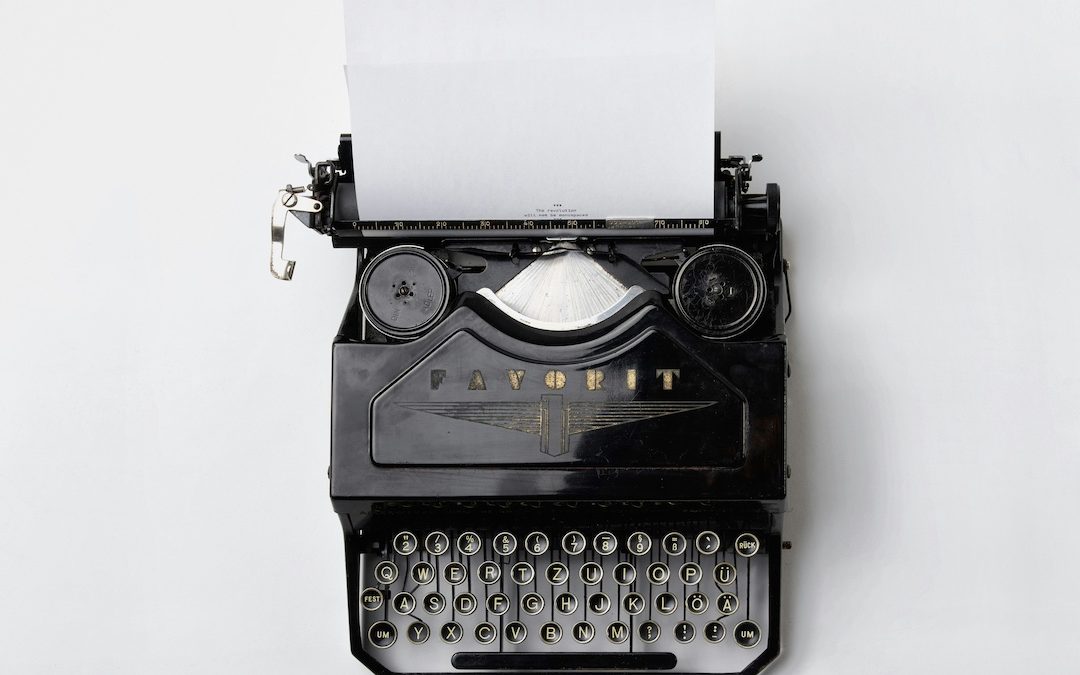
by Rachel Toalson | This Writer Life
Some writers stay far away from personal experience when crafting stories.
Me? I like to toe the line. Most of my stories contain very specific pieces of my life. My first traditionally published book, The Colors of the Rain, included grandparents and an uncle and a real-life family tragedy. My second book, The Woods, was not my personal experience, but I drew upon real-life historical events—the Texas City Disaster. The First Magnificent Summer includes my experience starting my first period one thousand miles away from home while visiting my dad and stepmom after my parents divorced. And my most recent book, Something Maybe Magnificent, is a very close retelling of my stepdad’s and my story.
In Donald Maass’s book, The Emotional Craft of Fiction (which is one of the best craft books I’ve read, by the way), he says, “Writers have amazing personal stories. Sometimes they’re downright astonishing. What’s puzzling to me is that people with such rich experience to draw upon too often write stories far less dramatic than their own.’
Why is this?
I think sometimes we’re afraid to write our stories. We’re afraid to use the situations that caused us such turmoil and angst and all kinds of big emotions. But we felt those big emotions. And when we write about those big emotions, our readers will also feel them. That’s something worth considering.
What I’ve discovered as a writer of semi-autobiographical fiction is that often, sorting through those situations in my past—the ones that hurt me or the ones that threw me sideways or the big disappointments and setbacks—help me actually process through them in a healthy way. Write them into a better story, maybe. One of the most powerful things we can do in our lives is turning our experiences into a story—whether or not we share that story with the world. Psychology research shows that shaping our experiences into stories helps us process and heal from them.
Most of us have rich experiences that would make fascinating stories. Many times we think, No one else would be interested in this. But that’s just seeing through our foggy lenses. It may not be interesting to us, because we lived it. But it will definitely be interesting to others who haven’t lived it. Or others who have lived it; they’re grateful to know they’re not alone.
Of course we might not want to share every personal story we’ve lived. But some of them might be worth exploring, don’t you think?
Here are my best tips for doing that:
1. Make a list of all the significant events you can remember in your life so far.
I’m thinking high school trips where you fell in love (hello, Disney World band trip), the first week of college when you were trying to find your bearings. First love, first kiss, a marriage or engagement. Kids. Deaths. Divorce. That family tree project in third grade where you didn’t know anything about your family and could only trace back a couple of generations. The time your grandmother told you she liked you better when you ate.
(These are just my stories. I know they’re probably not yours. I’m just trying to get your brain working.)
Think about all those experiences that made an impact on you one way or another. They don’t have to be bad. They can be joyful, too. Though the disappointing and heartache-y situations make for better fiction. 🙂
2. Consider the question, If I had to write a story about my childhood, what would it be?
Or another: If I had to write a story about my young adulthood, what would it be. And: If I had to write a story about my life now, what would it be?
Sometimes just asking ourselves the question can unlock inspiration to draw upon for stories or writing pieces. For example, I had a string of months right after my oldest turned 13 when we couldn’t seem to have a conversation without an argument. He took everything I said the wrong way. I wrote a poem called, “I Am a Villain in His Story.” Because that’s very much how I felt. That led me to begin work on an adult novel about a mother exploring her relationships with her children and the myriad ways she lets herself down. It may or may not go anywhere. But it’s real-life inspiration.
3. Look back at old things.
After graduating high school, I spent my summer making scrapbooks of all four years of my high school education. These things are a treasure trove of what teenage Rachel felt was important to highlight in her life. Have I used them for some young adult story inspiration? Absolutely.
Journals, diary entries, old writings, yearbooks. Receipts, old emails, letters. Get your hands on anything that will tell you a little bit about your past life. Something more than your memory can tell you.
If you’ve been a diarist or journal keeper, these, too, can be spectacular treasures. When I was thinking back to my first love story (which I shared in the last email, if you want to read a teeny bit about it), journals were helpful for showing me just how melodramatic those first-love feelings can be. When you’re young and in love and that love is suddenly taken away, it’s devastating. It feels like life won’t go on (contrary to what Celine Dion sang the year of my first heartbreak). Like you will never feel that way about someone again. Like the world can’t possibly have another Bubba Loewe in it. (Yes, I dated a guy named Bubba, and I was completely smitten. I don’t even recall his real name.)
You never know what kind of inspiration you’ll find when you look back. So take out those old journals and start paging through your “important mementoes” drawer. Real-life stories can make lovely fiction.
When we write from real life, we don’t have to imagine emotions, because we lived them. We remember them. Or we’re still living them. And that makes a difference to readers. Because we remember the way books make us feel.
I hope you have a fantastic month of writing your stories—for yourself or for others.
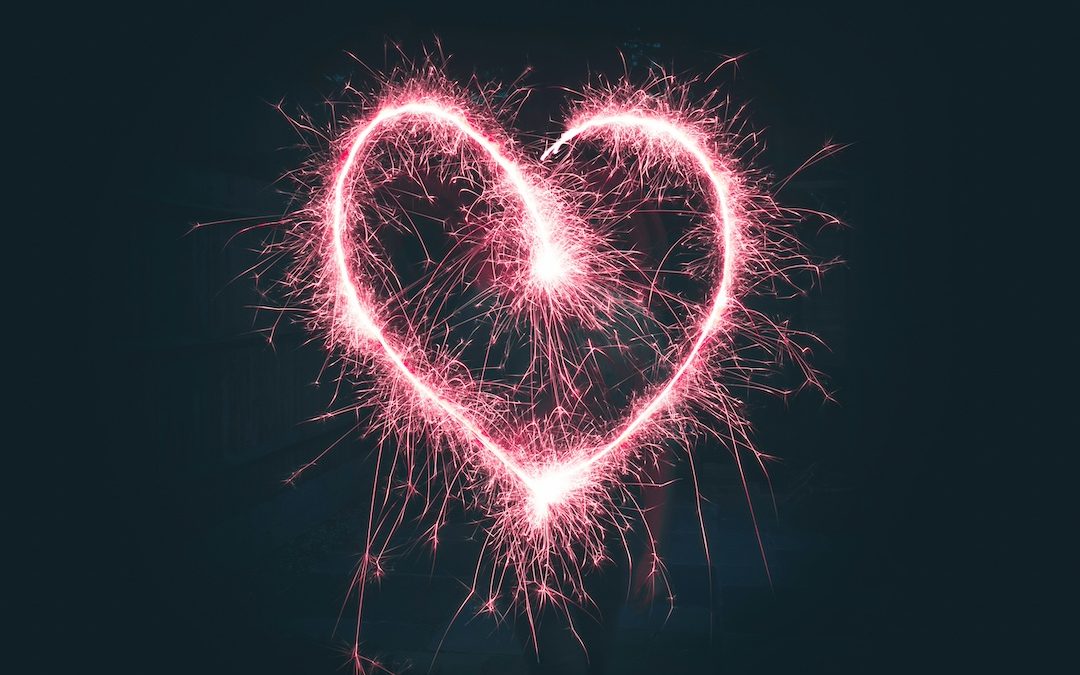
by Rachel Toalson | Books
Here are five or so things worth sharing this month:
1. Reading (A): I just finished Emily Henry’s latest rom com, Funny Story, and thoroughly enjoyed it. Henry has a way with characters and romantic tension and is one of the master’s (in my opinion) in her genre. I also really enjoyed her Book Lovers and Beach Read.
2. Reading (MG): When I heard Dan Gemeinhart had a followup book to his The Remarkable Journey of Coyote Sunrise, I knew I had to read it. And Coyote Lost and Found was splendid. We get the same quirky characters (with a few added in) on a different roadtrip quest.
3. Watching: A couple weekends ago I watched the Max documentary The Fastest Woman on Earth, about professional racer and TV personality Jessi Coombs and oh my goodness was it fantastic. It’s a fascinating story about Coombs’s quest to break the land speed record and how speed racing is still a field of men. It includes information about one of the first women racers and daredevils, Kitty O’Neil, who was a deaf woman who paved the way for people like Coombs to participate in racing events. I think I might be falling down a hole of research because I’m so fascinated by all this. Summer research project?
4. Reading (A): Well, it’s been a while since I’ve read a book where I got so invested in the characters I didn’t want the story to end—but that was the case with Hello Beautiful, by Ann Napolitano. What a magnificent story. It follows four sisters through decades and has the feel of Little Women, which I believe was kind of the goal. It was voted one of the best books of 2023, and I definitely see why. This is the first of Napolitano’s books I’ve read, but I’ll be looking to add more to my TBR!
5. Reading (MG): Varsha Bajaj’s book Thirst, was a lovely read about Minni, who lives in Mumbai, in one of the poorest sections where water is rationed and is only available during certain times of the day. And yet someone—a richer someone—is stealing the water, and Minni and friends have to uncover it. I found the tale sweet and sad and important, especially for young readers who often take for granted their access to water (like my sons). Highly recommended!
6. Reading (A): Have I mentioned that I am a sucker for based-on-true-life stories? Ariel Lawhon’s The Frozen River was one of my favorite recent reads. It tells the story of Martha Ballard, a real midwife in the 1780s. It was fascinating and thrilling and completely compelling—and, of course, had feminist overtones, since Martha was a fierce and independent woman when that wasn’t exactly “allowed.” I loved everything about this book. And now I might have to do a deep dive into Ariel Lawhon’s books, because that’s how I roll. 🙂 When you read it, make sure you also read the author’s note. It’s as fascinating as the book!

by Rachel Toalson | Wing Chair Musings
I’d just recorded a video about how not everyone will like our books and we can’t possibly please everyone—and I got a trade review that rubbed all my insecure places.
The reviewer clearly didn’t “get” the book and missed the whole point of it. She focused on strange pieces and made her assessment with what felt like only half the picture.
It threw me into a tailspin.
Have you ever noticed that when you think you’ve mastered some way of being human—when you think maybe you’ve wrestled with it enough to make some statement about it or even teach someone about it, the universe endeavors to prove you haven’t quite learned what you needed to learn? (My children show me this frequently.)
I’d just recorded a video about this. It’s like the universe said, “Okay. Challenge accepted.”
It took me a few days to get over this review. I kept hearing the reviewer’s words in my head when I sat down to write. Even though I knew they weren’t true. Even though I know that what other people think is not my business.
And then I read these words of Rose Marie Toussaint’s: “When we are rejected in the world we will recover only as we begin to realize that we must hold on to who we are and not be defeated by outside evaluations.”
You may not know who Rose Marie Toussaint is. She’s a physician who was the chief surgeon for the liver transplant center at Howard University Hospital. She was born in Haiti and came to the U.S. with her family when she was a teenager. She was a woman, born in 1956, who loved math and science and medicine at a time when women weren’t supposed to love math and science and medicine.
How much opposition and rejection do you imagine she faced as a Black woman in medicine during the 1970s and 1980s?
She meant those words she said, and she lived them.
Reading her words reminded me that I’ve been here before. I know who I am.
Sometimes we forget our song. We let those negative winds push us around and tell us a story that’s not true. We let them say, You don’t deserve happiness, this dream was too big, you are not good enough or worthy enough for any of it.
I get caught in that headspace sometimes. Many of us do.
The glib words of others can bring us low. They can make us forget our song, shake up the core of who we are. Holding on to who we are is not always easy.
But we must. We must hold on to who we are with aching, cramping fingers when we are rejected by the world.
We have multiple opportunities for those outside evaluations to come crashing in. I feel them in my mothering, my partnering, my writing, my publishing, my volunteering or not volunteering…on and on it goes.
The question is, will we hold on to who we are? Or will we be shaken by outside opinions and evaluations?
I hope we always stand strong.
Have a marvelous month of defeating those outside opinions. I’ll be fighting them right alongside you.
Here are some of my tricks for remembering who I am:
1. Take some time.
It’s okay to feel what you feel. These are words I’ve told my children over and over again. Our feelings are valid.
But.
But we don’t want to stay in the negative feelings for too long.
Sometimes outside opinions and evaluations hurt. Wherever and whomever they come from. They all have the same kind of sting.
It can be helpful to take some time away and reconnect with who you know you are. Let those outside evaluations run their course, and hold tight to what you know is true: You are magnificent just the way you are.
2. Lean on people.
The people who love you can remind you who you are and that you’re magnificent. Don’t push them away. Open up and talk. Let them love you.
My freshman year of high school, I was completely in love with my boyfriend, who was a junior—and absolutely gorgeous. We dated for about three months before he broke up with me. I was devastated with a capital D. I thought I would never make it through that breakup.
A good friend of mine made me a mix CD full of empowering songs that reminded me who I was and that I didn’t need a stupid boy who clearly didn’t know what he had when he had it. I listened to that tape over and over and over. She was my people. She reminded me I was amazing. (Also: there’s a young adult story in this. I’m working on putting it down on paper!)
3. Evaluate
I’m a big fan of evaluating. Everything can benefit from evaluations.
Ask questions like, Why does this bother me so much? The truth? It probably speaks to a pesky insecurity. Which means this is a growth opportunity.
And remember—the pain of this evaluation/disappointment/anger-inducing circumstance won’t last forever.
Onward!
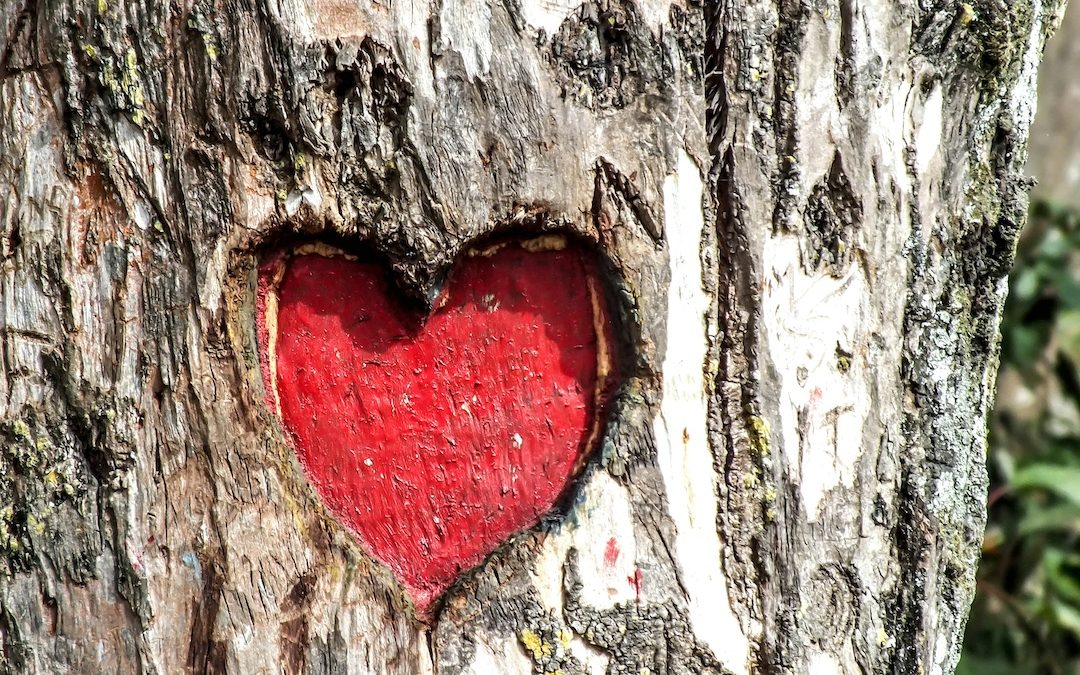
by Rachel Toalson | Wing Chair Musings
Have I mentioned I love what I do?
This is a frequent joke between my husband and me—because I mention it at least two times a week.
I really, really love what I do.
When people ask me if there’s a part of my writing process that I don’t like, I usually have a hard time coming up with one. Because every part of it is enjoyable—the exciting origin of an idea, its development into a possible story, the drafting of that story and all its messiness, the revisions that feel like puzzles.
Copy editing may be my least favorite part, I think. And yet still enjoyable in its own way—especially because it represents an almost-finished book!
Not a day goes by that I don’t feel incredibly grateful that I get to do this.
The writing life is full of uncertainty—and uncertainty is not my favorite. (Okay, I found my least favorite part of the process…also—reviews). I could go whole years without selling another book to a publisher, without seeing one of my books out in the world. The uncertainty can feel nearly impossible to carry sometimes.
And yet every time my agent and I go out on submission with a new manuscript, I feel such hope and possibility. Because I know that what I do matters. It matters to me, and it also matters to the readers of my books. It matters to children and adolescents and young adults and older adults—everyone who picks up one of my novels or poetry or essay books.
We may not ever know just how much our work matters. We till the soil, plant the seeds. We don’t always get to see the blooms or how colorful the flowers are.
Recently I visited my youngest son’s elementary school, where I talked and taught about poetry. A mom I didn’t know found me on social media and sent me a personal message. She told me that her son, a third grader like my son, had not stopped writing poetry since my visit. She said, “I don’t know what you said to those kids, but he is writing like I’ve never seen.” She sent me pictures of his poetry, which he stapled together like a book. It was precious.
Every now and then, we do get confirmation that what we do matters. Those days are the best—but also few and far between. So we have to keep reminding ourselves that our work matters. Sometimes we’re the only ones holding on to the truth that it does.
When we feel like something doesn’t matter, it’s really challenging to keep doing it. To stay motivated. I see this in my teenagers, who are all done with school (we have one more week. They’re so done.). They think school doesn’t matter to their future. I remember thinking that about certain classes when I was in high school. I had to make myself care about AP physics; I knew I wouldn’t need it in my future. But I did need it to graduate at the top of my class and get a scholarship, which was the only way I knew I’d get a chance to go to college.
So much of the impact we make is invisible. Sometimes it’s hard to remember our work matters. That we matter. So how do hold fast to that conviction?
Here are some of my favorite ways to remember I’m making a difference in the world:
1. Keep a folder of all the kind notes you’ve gotten.
As a writer, I know not many get in touch to tell you how much your writing meant to them. I can work and work and work and never feel like I’m doing anything worthwhile. Half the time I feel completely invisible anyway. No one knows my work. No one’s read a thing I’ve written. (Of course that’s not true. It’s just the negative voice inside our heads talking.)
But people have gotten in touch over the years. I keep their notes in folders on my computer and in my email. I keep actual physical folders, where I print out the kind and thoughtful notes I’ve received. They remind me when I forget that my work is making an impact I can’t always see.
Do the same for yourself. Keep those things in a visible, easily-accessible place. And revisit them often.
2. Adopt your own mantra: What I do matters.
Put your mantra in a prominent place—on your cork board or use a post-it note to stick it to your computer, or write it on your mirror so every time you look at yourself you say the mantra, too. Repeat it over and over and over in your head until that’s the voice you hear when things get rough.
Sometimes the most powerful thing we can do is hold on to our own belief and conviction that our work matters, that it’s doing something good in the world. Because if we don’t believe, who will?
3. Check in with your motivations.
Of course we want to be known, maybe even a little bit famous—but we do our work for better reasons than that. Some of those for me: helping kids and teens known they’re perfect just the way they are. To bear witness to difficult stories in mine and others’ lives. To help readers see a way through hardship and feel seen. To heal the broken places in myself and in the world.
Go back to those motivations. When you look at the reasons you do things, you can’t help but know that your actions matter.
Now. Some of us may not actually love what we do. I worked a job for more than a decade that I wasn’t too thrilled about. It was necessary. Here are some strategies for making the less-than-enjoyable things a little more enjoyable:
1. Remind yourself that you get to do this, not that you have to.
(Yes, it’s sometimes hard to do. But seeing things as a privilege or a gift helps us put things in better perspective. When we get to do something, we’re lucky!)
2. Make it fun with rewards or celebrations.
(Everybody loves a celebration. And sometimes we can trick our brains into loving something if we tie it to a reward.)
3. Put on some music.
(When my family and I don’t feel like cleaning—because cleaning is the worst—we put on music. We may not exactly love it, but music at least makes it more enjoyable. Music makes most things better.)
I tend to agree with Katharine Graham, a newspaper publisher: “To love what you do and feel that it matters—how could anything be more fun?”
Have a beautiful month of loving what you do, knowing that it—and you—matters, and having fun every step of the way.











